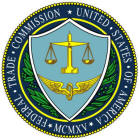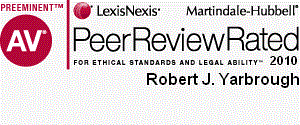Newsletter Issue 10 - December 2009
In this issue:
Bloggers and advertisers cautioned by the FTC
on product endorsements.
Global Findability goes for the gold.
What to do when your trademark is registered as a domain name by
another person.
Planning to license or sell your patent?
Bloggers and advertisers cautioned by the FTC on product endorsements.
by Adam Garson
On December 1, 2009, the Federal Trade Commission (FTC) promulgated new guidelines governing endorsements and testimonials. Although the guidelines -- being just "guidelines" -- do not have the force of law, they do provide insight on how the FTC will interpret the law. The guidelines cover endorsements by bloggers, consumers, experts, and organizations. Let's look at what the guidelines say about blogging.
First, here are the general guidelines. Endorsements consist of any "advertising message...that consumers are likely to believe reflects the opinions, beliefs, findings, or experiences of a party other than the sponsoring advertiser..." Endorsements must reflect the honest opinions, findings, beliefs, or experience of the endorser. They may not be quoted out of context or reworded in a manner that "distorts" the original endorsement. If an advertisement states that an endorser uses the product or service, the endorser must have been a "bona fide" user at the time of the endorsement and the advertisement may only run during the period of the endorser's "bona fide" use. Both advertisers and endorsers may be liable for their statements.
Here's what the FTC has to say about bloggers. Product endorsements based upon a blogger's own experience with a product is not an endorsement under the Guidelines; however, if a blogger receives payment, he or she must disclose it.
If a blogger endorses a product received from an advertising service and makes unsolicited statements about its effectiveness, the advertiser and the blogger will be subject to liability for making misleading and unsubstantiated claims. Furthermore, the blogger will be liable if the blogger does not disclose that he or she is being compensated. The guidelines explicitly imposes a duty on the advertiser to monitor a bloggers' compliance.
The FTC also requires bloggers who review products received for free from manufacturers to disclose their connection with the manufacturer. As in the previous example, the FTC imposes a duty upon the manufacturer to insure that bloggers comply with the guidelines.
Bloggers and advertisers should familiarize themselves with the
new guidelines and should there be questions about their
interpretation, we are always available for consultation.
Adam Garson
Global Findability goes for the gold.
And the Oscar® for Most Innovative Marketing Goes to ...

Global Findability, Inc., which alleged in a lawsuit that Nicholas Cage's character in the new film "Knowing" infringed Global Findability's patent 7,107,286. The patent addresses storing global position and altitude information "into a single discrete all-natural number geospatial coordinate measurement representation for identification of a geospatial positional location. . ." In the movie, Cage's character perceives that strings of revealed numbers indicate future events and inputs the numbers to Google Maps to determine the location of the event.
Has the litigation raised Global Findability's profile?
Absolutely. Global Findability's likelihood of success in the
litigation? Not so much.
Robert Yarbrough
What to do when your trademark is registered as a domain name by another person.
by Deborah A. Logan
You've expended time, money, blood, sweat and tears branding your products and services. You are finally ready to take the next logical step, setting up a web site to establish your presence on the Internet. You set about to register your trademark as a domain name and you find that a trademark pirate has beaten you to the punch! Not to worry, there is a fairly straight-forward remedy that is quick and less costly than traditional litigation.
When you or a third party registers a domain name, you certify that you are not infringing another's trademark rights, and you agree, in the event of a dispute, to submit to ICANN's Uniform Domain Name Dispute Resolution Policy (UDRP). Under this policy, if a trademark holder determines that another party (the registrant) has registered the holder's trademark as a domain name, it may file a complaint with either the World Intellectual Property Organization or the National Arbitration Forum. Damages are limited to transfer or cancellation of the domain name. The process typically takes less than 90 days from start to finish and deadlines are strictly enforced.
To prevail in an ICANN proceeding, the trademark holder has the burden of proving ALL of the following:
(a) that it has valid trademark rights,
(b) that the domain name is confusingly similar to its valid trademark,
(c) that the registrant has no legitimate right or interest in the domain name,
(d) that the registrant registered the domain name in bad faith AND
(e) that the registrant is using the domain name in bad faith.
A well drafted complaint is invaluable to the ability of a
trademark holder to win transfer of the domain name and to then
establish an online business presence- a vital part of marketing and
sales in today's consumer market. If you need assistance in such a
matter, please do not hesitate to contact us.
Adam Garson
Planning to license or sell your patent?

The recently decided case of Hewlett-Packard v. Acceleron (C.A.F.C. 2009-1283) serves as a warning to any patent owner wishing to offer a license to a patent. If you're in that position, be careful or you may end up in court. Here's why.
In the distant past (which, in this instance, means before 2007) a patent owner actually had to threaten someone with an infringement suit before the target company or individual could race to Federal Court to file a "declaratory judgment action." Patent owners thus became careful not to issue threats, but only to inform potential licensees about their patents and offer licenses under the patents. (After all, courts have long written that a patent is not worth anything unless the owner of the patent has the right to let others know about it.) For more details about how this standard evolved see the MedImmune and SanDisk cases.
On December 4, 2009, the court in Acceleron changed the standard for bringing a declaratory judgment action. It held that a lawsuit may be filed by any party who is led to believe that there is an, "intent to enforce a patent" by another party. Thus, for patent owners (including universities, research and development companies, and early-stage ventures) there appears to be almost no way to enter into discussions about patent licensing without risk of a declaratory judgment lawsuit, short of having a stand-still agreement before starting discussions.
This threat to patent owners is not academic. A declaratory
judgment action is usually a full patent infringement and validity
law suit, and the average cost to defend such a suit is now well
over $1 million. The state of the law now: you cannot be sued for
just having a patent, but talking about it can land you in court.
Lawrence Husick

